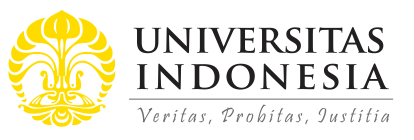
Abstract
Surveillance is the systematic, continuous collection, processing, analysis and interpretation of data and the dissemination of information to units in need to be able to take action. In the field of health, human resources (HR) in an organization is very important role. Because the quality of health services to the public is determined by the human resources working in it. With the number of reports and cases of outbreaks in Sukabumi district, it is necessary a system of information and recording of data that muktahir. The purpose of this research is to know the effectiveness of training of geographic information system for health surveillance officer in Sukabumi district by analyzing the result of training competence. This research method using mix-method, that is with interview technique and statistical analysis (MANOVA). Based on the results of the research, there is a correlation between the training participants' knowledge on the level of education. Through data analysis training GIS-based health data managers are expected in the health center and Health Office Sukabumi District can increase the competence of surveillance officers in performing data processing in GIS applications. This research becomes a consideration in conducting training to the community, especially for health surveillance officers. The relationship between age, education and gender, only knowledge on the educational level is related
References
Amahoru, A, Setyorini, TD & Prabowo, S 2013, ‘Service Quality Skills Training on Service Quality Frontliners PT. Perusahaan Listrik Negara (PLN) Ambon City’, Kajian Ilmiah Psikologi, vol. 2, no. 1, pp. 45–49.
Bertrand, JT, Kayembe, P, Dikamba, N, Mafuta, E, Hernandez, J, Hellen, J & Binanga, A 2014, ‘Using Mapping of Service Delivery Sites to Increase Contraceptive Availability in Kinshasa, Democratic Republic of the Congo’, International Perspectives on Sexual and Reproductive Health, vol. 40, no. 2, pp. 95–99.
Billett, S 2014, ‘Conceptualising lifelong learning in contemporary times’, in Promoting, assessing, recognizing and certifying lifelong learning, Springer, Dordrecht, pp. 19–35.
Choi, WH & Jie, MS 2014, ‘Development of Smart Remote Local Information Embedded System Using Global Positioning System’, Applied Mechanics and Materials, vol. 681, pp. 51–56.
Clark, DO, Xu, H, Unverzagt, FW & Hendrie, H 2016, ‘Does targeted cognitive training reduce educational disparities in cognitive function among cognitively normal older adults?’, International Journal of Geriatric Psychiatry, vol. 31, no. 7, pp. 809–817.
Clay-Williams, R & Braithwaite, J 2009, ‘Determination of health-care teamwork training competencies: A Delphi study’, International Journal for Quality in Health Care, vol. 21, no. 6, pp. 433–440, accessed from .
Davila, EP, Suleiman, Z, Mghamba, J, Rolle, I, Ahluwalia, I, Mmbuji, P, De Courten, M, Bader, A, Zahniser, SC, Krag, M & Jarrar, B 2015, ‘Non-communicable disease training for public health workers in low- and middle-income countries: Lessons learned from a pilot training in Tanzania’, International Health, vol. 7, pp. 339–347.
Dewi, VP, Ismail, RI & Kusdhany, ML 2018, ‘Training Program To Support Preparedness of Elderly Health Care Services’, ASEAN Journal of Community Engagement, vol. 2, no. 1, p. 120–133.
Fietzer, AW, Mitchell, E & Ponterotto, JG 2018, ‘Multicultural Personality and Multicultural Counseling Competency in Counselor Trainees’, Counselor Education and Supervision, vol. 57, pp. 82–97.
Haas, BE, Mincemoyer, CC & Perkins, DF 2015, ‘The Effects of Age , Gender , and 4-H Involvement on Life Skill Development’, Journal of Extension, vol. 53, no. 3.
Harteis, C, Billett, S, Goller, M, Rausch, A & Seifried, J 2015, ‘Effects of age, gender and occupation on perceived workplace learning support’, International Journal of Training Research, vol. 13, no. 1, pp. 64–81, accessed from .
Hillier, A 2010, ‘Invitation to mapping: How gis can facilitate new discoveries in urban and planning history’, Journal of Planning History, vol. 9, no. 2, pp. 122–134.
Hopfer, S, Chadwick, AE, Parrott, RL, Ghetian, CB & Lengerich, EJ 2009, ‘Assessment of Training Needs and Preferences for Geographic Information Systems (GIS) Mapping in State Comprehensive Cancer-Control Programs’, Health Promotion Practice, vol. 10, no. 4, pp. 579–587.
Kaligis, F, SW, N, Diatri, H & Dharmono, S 2017, ‘Life skills program for improving adolescent mental health in the af-termath Mount Merapi eruption, Yogyakarta-Indonesia’, ASEAN Journal of Community Engagement, vol. 1, no. 1, pp. 59–71.
Kubeck, JE, Delp, ND, Haslett, TK & McDaniel, MA 1996, ‘Does job-related training performance decline with age?’, Psychology and Aging, vol. 11, no. 1, pp. 92–107.
Mahfudhoh, B 2015, ‘The Components of Dengue Haemorrhagic Fever (DHF) Surveillance System in Health Department of Kediri City’, Jurnal Berkala Epidemiologi, vol. 3, no. 1, pp. 95–108.
Myaskovsky, L, Unikel, E & Dew, MA 2005, ‘Effects of gender diversity on performance and interpersonal behavior in small work groups’, Sex Roles, vol. 52, no. 9/10, pp. 645–657.
Narayanasamy, N 2009, ‘Participatory Rural Appraisal: Principles, Methods and Application’, Sage Publications, accessed from .
Notoatmodjo, S 2010, Methodology of Health Research, Rineka Cipta, Jakarta. Nykiforuk, CIJ & Flaman, LM 2011, ‘Geographic Information Systems (GIS) for Health Promotion and Public Health: A Review’, Health Promotion Practice, vol. 12, no. 1, pp. 63–73.
Okeowo, TA 2015, ‘Analysis of Competency and Training Needs Among Agricultural Extension Personnel in Lagos State’, International Journal of Forestry and Horticulture, vol. 1, no. 2, pp. 14–21.
Pfeffer, K, Martinez, J, Baud, I & Sridharan, N 2011, ‘Knowledge Production in Urban Governance Systems through Qualitative Geographical Information Systems (GIS)’, Environment and Urbanization Asia, vol. 2, no. 2, pp. 235–250.
Prasatin, OV 2013, ‘Factors Associated with Disease Epidemiological Surveillance Officer Performance Level Malaria Health Center in Kebumen District in 2012’, Unnes Jurnal of Public Health, vol. 2, no. 4, pp. 1–11.
Rivai, V 2005, Human Resource Management For Companies From Theory to Practice 1st edn, PT Raja Grafindo Persada, Jakarta. Teixeira, S 2018, ‘Qualitative Geographic Information Systems (GIS): An untapped research approach for social work’, Qualitative Social Work, vol. 17, no. 1, pp. 9–23.
Umar, H 2005, ‘Riset Sumber Daya Manusia’, PT. Gramedia Pustaka Utama, accessed from .
Wahyuni, CU & Artanti, KD 2013, ‘Health Cadre Training for Suspected Tuberculosis Case Detection’, Kesmas: National Public Health Journal, vol. 8, no. 2, pp. 85–90.
Recommended Citation
Makful, Martya
(2019).
The effectiveness of Geographic Information System training for surveillance officers in Sukabumi district.
ASEAN Journal of Community Engagement, 3(1).
Available at: https://doi.org/10.7454/ajce.v3i1.88







